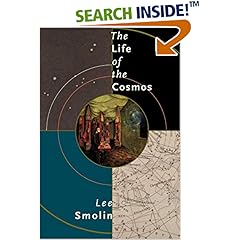Message no. 578[Branch from no. 570] Posted by Thomas Culhane (1311520071) on
Nice job summarizing the text and linking to outside sources Dana. Still, I missed reading how the observations you've quoted relate to YOUR LIFE and YOUR EXPERIENCE. Except for the last paragraph it seems you were hesitant to make your summary personal and relational. Don't back off from this approach -- embrace it! Throw nothing away, but fill your paragraphs with your own experiences and insights through ANECDOTES. As you say in your intro, everything is a result of cause and effect! What we are most after in this course is how your growing understanding of Environmental Psychology (cause) had an affect or influence on you (effect).
For example, if you are describing heuristics as problem solving techniques, tell us how you use heuristics in your own life. I learned Heuristics as "questions that lead to further questions" when I was at Harvard, and I was told that I should always pose questions "heuristically" so that I could open up new avenues of research. It made a profound difference in my life -- now I solve problems because though I may not know the answer, I know the right questions to ask to get to the answer. For example, lately I have been told by many Egyptian engineers and plumbers that I can not use plastic tanks to store hot water from my solar hot water heaters that we build with the garbage people. But nobody can afford steel tanks. Instead of asking "why not?" which would just get me an answer ("because they can't take the heat...") I ask "what is it about plastic tanks that makes them unsuitable for solar hot water?"
The engineer answers "they would melt".
I ask, heuristically, "at what temperature does plastic for such tanks begin to melt, and how hot must the water be to cause such a problem."
The answer then becomes "I don't know".
Then I ask, heuristically, "how might we find out".
The we begin testing through experiments.
Heuristics is simple and yet complex -- it is a new way of thinking where you assume that answers aren't supposed to come quickly and that the goal of knowledge is better questions. Armed with this approach I have determined that, yes, we can use plastic tanks (and pipes!) for solar hot water systems, so the poor need not waste money on expensive copper and steel! I am improving as an inventor because of the heuristic approach. And as you talk about in your summary, the scientific method IS an application of heuristics, helping us to "come to terms with what we are observing".
By the way, when you talked about "the real question of why and how the universe creates a relation" you reminded me of this fantastic book I am reading by Lee Smolin called "The Life of the Cosmos". It tries to answer that question, and I highly recommend it, as well as the books by Michio Kaku.

http://www.2think.org/lifeofthecosmos.shtml



No comments:
Post a Comment